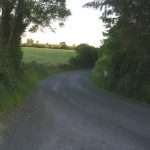The following letter appears in this week’s edition of the Irish Farmers’ Journal. The title above is that applied to the letter by the Journal’s editor.
“On Monday, 13th August, the ‘Irish Times, ran a column by Jim Clarken of Oxfam Ireland in which Mr Clarken commented, “Thankfully, in Ireland just 7 per cent of household incomes goes on the weekly shop”. Nowhere in the column did he ask why the weekly shopping bill was so low.
Ministering in a farming community, where the past summer has created huge difficulties, it seemed to me extraordinary that anyone would write so unthinkingly, so I wrote to the ‘Irish Times’
‘Mr Clarken does not pause to ponder what this means for farmers in Ireland. That the cost of the weekly shopping is a small percentage of household incomes is a reflection of the fact that many Irish farmers are having to produce at below cost levels, prices being imposed upon many of them by companies with monopsony powers. At present, the only income for many farms is the EU Single Farm Payment.
Mr Clarken’s wish for justice in the world would presumably include a desire that all people would receive a reasonable return for their labours – it is something necessary at home as well as overseas’.
The ‘Irish Times’ did not print the letter, nor did they print any other comment on the piece.
There seems a mindset in some quarters that the farming community is wealthy, (and can, presumably, afford such situations as that where people only spend 7% of their income on their weekly shopping). Any suggestion that this is not the case seems to be ignored. Minister Quinn’s proposals that assets be included in assessments for third level education grants seemed just a part of a mindset which makes no attempt to understand the realities of rural Ireland.
The latest round of cuts in social services announced this week, which include a reduction of 600,000 home help hours, will impact most severely upon those living in scattered and isolated communities. It is a further demonstration of a failure of understanding on the part of metropolitan Ireland of what life is really like for those who live outside the cities.
